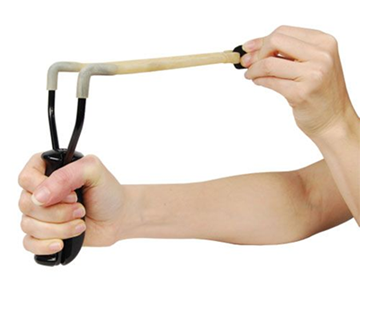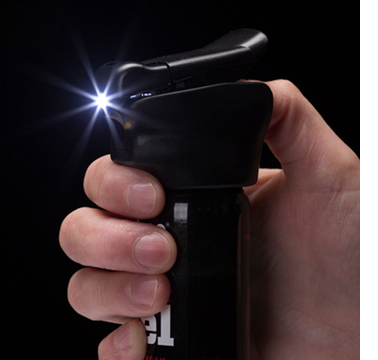Rhode Island Stun Gun and TASER Laws
 Rhode Island is one of two states in the United States that has a complete ban on the possession of stun guns and TASERs. The only other state with a similar ban is Hawaii. In 2019, a federal judge ruled that Rhode Island's ban on stun guns is unconstitutional, but the state has appealed the ruling. As of March 2023, the ban is still in effect.
Rhode Island is one of two states in the United States that has a complete ban on the possession of stun guns and TASERs. The only other state with a similar ban is Hawaii. In 2019, a federal judge ruled that Rhode Island's ban on stun guns is unconstitutional, but the state has appealed the ruling. As of March 2023, the ban is still in effect.
The Rhode Island law that bans stun guns and Tasers is known as Title 11-47-2 of the Rhode Island General Laws. The law defines a stun gun as "any weapon which, when used against a person, is designed to temporarily immobilize that person by the application of an electric current." The law defines a Taser as "a weapon which, when used against a person, is designed to temporarily immobilize that person by the discharge of two darts or probes which deliver an electric current."
The Rhode Island law that bans stun guns and Tasers makes it a crime for anyone to possess one of these weapons. The law also makes it a crime for anyone to sell, offer to sell, or transfer a stun gun or Taser to another person.
There are a few exceptions to the Rhode Island law that bans stun guns and Tasers. The law allows law enforcement officers to use stun guns and Tasers. The law also allows people who are licensed to carry concealed weapons to carry stun guns and Tasers.
The Rhode Island law that bans stun guns and Tasers has been criticized by gun rights advocates. Gun rights advocates argue that the law is unconstitutional because it violates the Second Amendment right to bear arms. Gun rights advocates also argue that stun guns and Tasers are an effective way to protect oneself from criminals.
The Rhode Island Attorney General's office has defended the law that bans stun guns and Tasers. The Attorney General's office argues that the law is necessary to protect public safety. The Attorney General's office also argues that stun guns and Tasers can be dangerous and can be used to injure or kill people.
The future of the Rhode Island law that bans stun guns and Tasers is uncertain. The state is appealing the federal judge's ruling that the law is unconstitutional. It is possible that the state Supreme Court will overturn the federal judge's ruling. It is also possible that the state legislature will pass a law that legalizes the possession of stun guns and Tasers.
What to do if you are considering buying a stun gun or Taser in Rhode Island
If you are considering buying a stun gun or Taser in Rhode Island, there are a few things you should keep in mind. First, it is important to know that the possession of stun guns and Tasers is illegal in Rhode Island. Second, even if you are licensed to carry concealed weapons, you cannot carry a stun gun or Taser in Rhode Island. Third, if you are caught possessing a stun gun or Taser in Rhode Island, you could be charged with a crime.
If you are considering buying a stun gun or Taser in Rhode Island, you should consult with an attorney to make sure that you are not violating any laws. You should also make sure that you are buying a stun gun or Taser from a reputable dealer.
Conclusion
The Rhode Island law that bans stun guns and Tasers is a controversial law. The law has been criticized by gun rights advocates, who argue that the law is unconstitutional. The law has also been defended by the Rhode Island Attorney General's office, who argue that the law is necessary to protect public safety. The future of the law is uncertain. The state is appealing the federal judge's ruling that the law is unconstitutional. It is also possible that the state legislature will pass a law that legalizes the possession of stun guns and Tasers.
See cost of Stun guns and TASERs
Disclaimer: The information provided in this blog post is for general informational purposes only and should not be construed as legal advice. The laws and regulations regarding stun guns, TASER devices, and other electronic defense weapons can vary widely by jurisdiction and can change over time. Therefore, it's important to consult with legal professionals or relevant authorities to obtain accurate and up-to-date information that applies to your specific circumstances.



























